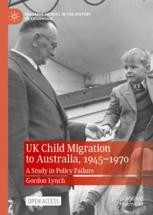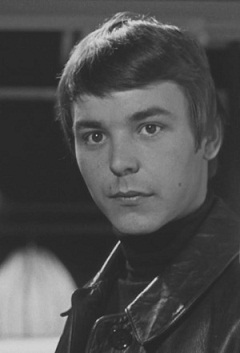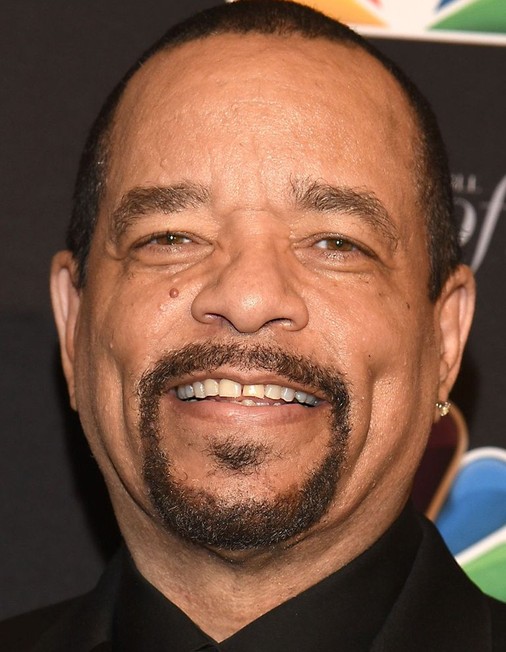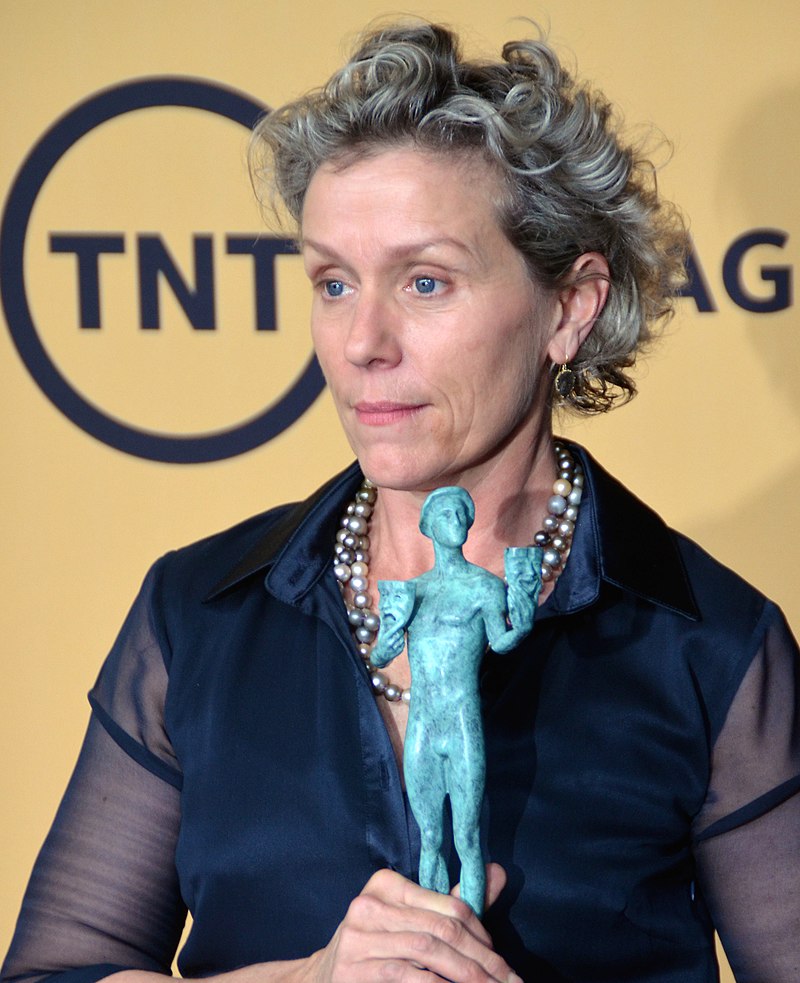Search Results
5677 results found with an empty search
- Who Cares?: Young People in Care Speak Out
Academic Books & Book Chapters Who Cares?: Young People in Care Speak Out Raissa Clark Page et al. 1977 Written by a group of young people in care, this publications provided a platform from which they could speak freely about their hopes, aspirations, contentions, criticisms and fears. As well as detailing their experiences of public care, it highlighted those aspects of the system that needed addressing to ensure that it meets the social, emotional and educational needs of all children and young people. External Website
- UK Child Migration to Australia, 1945-1970: A Study in Policy Failure
Academic Books & Book Chapters UK Child Migration to Australia, 1945-1970: A Study in Policy Failure Gordon Lynch 2021 This book offers an unprecedented analysis of child welfare schemes, situating them in the wider context of post-war policy debates about the care of children. Between 1945 and 1970, an estimated 3,500 children were sent from Britain to Australia, unaccompanied by their parents, through child migration schemes funded by the Australian and British Governments and delivered by churches, religious orders and charities. Functioning in a wider history of the migration of unaccompanied children to overseas British colonies, the post-war schemes to Australia have become the focus of public attention through a series of public reports in Britain and Australia that have documented the harm they caused to many child migrants.Whilst addressing the wide range of organisations involved, the book focuses particularly on knowledge, assumptions and decisions within UK Government Departments and asks why these schemes continued to operate in the post-war period despite often failing to adhere to standards of child-care set out in the influential 1946 Curtis Report. External Website
- Barry Evans
Actors Barry Evans Barry Joseph Evans (18 June 1943 – 9 February 1997) was an English actor best known for his appearances in British sitcoms such as Doctor in the House and Mind Your Language. Barry Evans was born in Guildford, Surrey. He was abandoned as a baby and grew up in a Barnardo’s home in Twickenham, a suburban town in Middlesex. Evans’ acting ability was recognised while he was still at school. After he left, he won a John Gielgud Scholarship which enabled him to study at the Central School of Speech and Drama. Evans made his theatre debut in Barrow-in-Furness. He went on to appear in Chips with Everything on Broadway in 1963. He finished his working life as a taxi driver so he could have a regular income. Barry Evans was found dead in his home in Leicestershire. He had received a blow to the head and an 18-year-old man was arrested, but never charged with murder. External Website
- Incarnations of the Orphan
Academic Articles Incarnations of the Orphan Nina Auerbach 1975 For decades Nina Auerbach's article on representations of the orphan was one of the few on the topic. She writes: "For it is an easy sentimental mistake to think of the orphan as fragile. He seems composed of alternate layers of glass and steel, and sends out sting rays at those who try to adopt him. He first appears in the eighteen century as a slyly potent underground figure...But even the Romantic waif is brimming with a certain equivocal energy...His solitude eneregizes him as a visionary artist, and silent schemer, his appearance of winsome fragility feeding into his pwoer of survival." Auerbach's analysis includes Moll Flanders, Jane Eyre, Becky Sharp, Healthcliff and Pip of Great Expectations External Website
- Street urchins, sociopaths and degenerates: orphans of late-Victorian and Edwardian fiction
Academic Books & Book Chapters Street urchins, sociopaths and degenerates: orphans of late-Victorian and Edwardian fiction William David Floyd 2014 From the notable emergence of orphan figures in late eighteenth-century literature, through early- and middle-period Victorian fiction and, as this book argues, well into the fin de siècle, this potent literary type is remarkable for its consistent recurrence and its metamorphosis as a register of cultural conditions. The striking ubiquity of orphans in the literature of these periods encourages inquiry into their metaphoric implications and the manner in which they function as barometers of burgeoning social concerns. The overwhelming majority of criticism focusing on orphans centres particularly on the form as an early- to middle-century convention, primarily found in social and domestic works; in effect, the non-traditional, aberrant, at times Gothic orphan of the fin de siècle has been largely overlooked, if not denied outright. This oversight has given rise to the need for a study of this potent cultural figure as it pertains to preoccupations characteristic of more recent instances. This book examines the noticeable difference between orphans of genre fiction of the fin de siècle and their predecessors in works including first-wave Gothic and the majority of Victorian fiction, and the variance of their symbolic references and cultural implications. External Website
- Maria Amidu
Artists Maria Amidu Maria Amidu is a graduate of the Royal College of Art in glass and ceramics and exhibited nationally and internationally as maker before pursuing a more social practice. From the age of six, Maria grew up in the UK care system after her mother died and her father returned to Nigeria. As a socially engaged artist, Maria has a commitment in her work to hidden stories, to people who have been unremembered. External Website
- Parragirls: Reimagining Parramatta Girls Home through art and memory
Academic Books & Book Chapters Parragirls: Reimagining Parramatta Girls Home through art and memory Bonney Djuric 2019 Parragirls profiles the transformative artwork Parragirlsrealised in collaboration with contemporary artists and communities since theParragirls Memory Project began in 2012. This vividly illustrated book revealshow art can change places and perceptions, in this case the long-neglected siteof Parramatta Girls Home in Western Sydney, located on the lands of theBurramattagal people of the Darug nation. Centred on the art and activism of itsformer residents, this is the first publication of its kind to use images andcreative writing to open up the difficult spaces of an Australian former childwelfare institution, one where significant abuse took place right up until itsclosure in 1974, as evidenced in the royal commission into child sexual abuse. 'Parragirls is an impressive book that serves as both an art publication and a record of social change. As an enduring testament to the experiences of the Parragirls – a collective of former residents of Parramatta Girls Home, where abuse and cruelty were rife – it charts the work of the Parragirls Memory Project across seven years of visual art, performance, events, exhibitions, writing, advocacy and activism...Parragirls is able to deliver something that is at once rigorous in its detailed presentation of a clear model, and accessible through its compelling narrative.' ― Eugenia Flynn, The Saturday Paper External Website
- Integrating personal and professional experiences: Seven phases to integrating loss and grief.
Academic Articles Integrating personal and professional experiences: Seven phases to integrating loss and grief. Rosemary Wanganeen 2011 This paper will discuss the "next generation" loss and grief model, the Seven Phases to Integrating Loss and Grief. It is a model that was not dragged kicking and screaming into the 21st century; rather, there seemed to be a readiness for it. That said, it took five years to design; its Aboriginal designer endured a major loss experience that became the foundation upon which to build the model; hence it is a non-academic model. In broad terms, this innovative and revolutionary model will discuss loss and grief from a human experience using Rosemary Wanganeen's personal story as a "case study" - putting a face to the statistics. External Website
- Ice-T
Actors Ice-T Tracy Lauren Marrow (born February 16, 1958), better known by his stage name Ice-T, is an American rapper, actor, songwriter, and producer. He was orphaned at the age of thirteen after which he lived with relatives. He began his career as an underground rapper in the 1980s and was signed to Sire Records in 1987, when he released his debut album Rhyme Pays -- the second hip-hop album to carry an explicit content sticker (following Slick Rick's La Di Da Di). The following year, he founded the record label Rhyme $yndicate Records (named after his collective of fellow hip-hop artists called the "Rhyme $yndicate") and released another album, Power, which would go Platinum. He co-founded the heavy metal band Body Count, which he introduced on his 1991 rap album O.G. Original Gangster, on the track titled "Body Count". As an actor, he played small parts in the films Breakin' and its sequels, Breakin' 2: Electric Boogaloo and Rappin', during the 1980s, before his major role debut, starring as police detective Scotty Appleton in New Jack City (1991). In 2018, he began hosting the true crime documentary, In Ice Cold Blood, on the Oxygen cable channel, which as of 2020, is in its third season. External Website
- Goodna Girls
Academic Books & Book Chapters Goodna Girls Adele Chenowyth 2019 Goodna Girls (2019) by Adele Chynoweth is an account of children, including state wards, being incarcerated in the adult psychiatric facility, Wolston Park Hospital, Queensland. Part of the rationale was that 'juvenile delinquents' needed medical intervention, including the use of chemical restraints. Goodna Girls includes the oral histories of former inmates as well as former staff of Wolston Park. External Website
- Orphans: A History
Academic Books & Book Chapters Orphans: A History Jeremy Seabrook 2018 Orphans have often been beneficiaries of charity and compassion--but society has also punished, abused and ill-treated them. Attitudes behind this maltreatment are rooted in ideas that those without parents are disruptive, malevolent, and in need of discipline. Drawing on historic documents, interviews and memoirs, Jeremy Seabrook charts history's changing and often loose definitions of "orphans," and explores their many "makers"--from natural or man-made catastrophes to the State, charity, and other social forces that have separated children, especially the poor, from their close kin.But this history is not only one of suffering: Orphans also reveals the uncounted millions taken in and loved by relatives, neighbors or strangers. Freed from constraints and driven by insecurity, many orphans--including Nelson Mandela, Marilyn Monroe and Steve Jobs--have led remarkable lives. External Website
- Academic Books & Book Chapters, F
Authors F Street urchins, sociopaths and degenerates: orphans of late-Victorian and Edwardian fiction ➝ Back to Top
- A perspective from the periphery: Re-imagining regional North Queensland women's stories using historical fiction
Academic Articles A perspective from the periphery: Re-imagining regional North Queensland women's stories using historical fiction Louise Henry 2019 In this article, Louise Henry, a PhD candidate at James Cook University in Queensland, Australia is considering the ethics of writing a novel about her grandmother. Louise is writing a historical fiction novel about her grandmother who was born in North Queensland in 1913, made a ward of the state 5 years later and then spent time in both the Townsville Orphanage and foster homes during 1920s. "Writing about family members throws up ethical challenges around representation and the use of family familes that are not directly my own" says Louise in the attached article. External Website
- Frances McDormand
Actors Frances McDormand McDormand was born Cynthia Ann Smith in Gibson City, Illinois. She was adopted at one and a half years of age by Noreen (Nickelson) and Vernon McDormand and renamed Frances Louise McDormand. Her adoptive mother was a nurse and receptionist while her adoptive father was a pastor; both were originally from Canada. McDormand has said that her biological mother, to whom she proudly referred, along with herself, as "white trash," may have been one of the parishioners at Vernon's church. She has a sister, Dorothy A. "Dot" McDormand, who is an ordained Disciples of Christ minister and chaplain,[4] as well as another sibling, both of whom were adopted by the McDormands, who had no biological children. McDormand is known for her portrayals of unique, quirky, and headstrong female characters, She is the recipient of numerous accolades, including two Academy Awards, two Primetime Emmy Awards, and a Tony Award. She is one of the few performers to achieve the "Triple Crown of Acting." McDormand was educated at Bethany College and Yale University. She has starred in a number of films by the Coen brothers, including Blood Simple (1984), Raising Arizona (1987), Fargo (1996), The Man Who Wasn't There (2001), Burn After Reading (2008), and Hail, Caesar! (2016). For her portrayal of Marge Gunderson in Fargo, McDormand won the Academy Award for Best Actress. Her other film roles include Mississippi Burning (1988), Almost Famous (2000), and North Country (2005), all of which earned her nominations for the Academy Award for Best Supporting Actress. In 2011, she won the Tony Award for Best Actress in a Play for playing a troubled single mother in Good People. On television, McDormand played the titular protagonist in the HBO miniseries Olive Kitteridge (2014), which won her the Primetime Emmy Award for Outstanding Lead Actress in a Limited Series or Movie. In 2020, she starred in and produced the acclaimed independent western drama film Nomadland and recently won a BAFTA, best actress for her portrayal as Fern. External Website
- Interrogating ‘poor outcomes’ and disrupted care in children’s fiction
Academic Articles Interrogating ‘poor outcomes’ and disrupted care in children’s fiction Kirsty Capes 2018 The Ethical Dilemmas of Researching and Representing ‘Refugee Lives’ Hari Reed, University of East Anglia ‘A Week in April’: The Lived Experience of Big Flame Activists in the Kirkby Rent Strike 19…A common trope of children’s fiction is the representation of child protagonists as victims of some form of disrupted parenting. Disproportionately, child protagonists across the children’s canon are orphans; in foster care or other kinds of institutional care such as boarding schools; living with inadequate, neglectful or otherwise insufficient parents; or raised by relatives. Research shows that ‘problem children’ – those who are victims of disrupted parenting – are more susceptible to what is frequently termed as ‘poor outcomes’ in adulthood. These can range from addiction issues to criminal behaviour and time in prison, to mental health problems including depression. Children’s fiction informs and amplifies this narrative of ‘problem children’ being destined for failure in later life, through its representations of children in care, orphans and so on. This slippage between public consciousness and popular culture creates a cultural hegemony whereby children who come from disadvantaged backgrounds are conditioned from a young age – through children’s fiction and other mediums – to believe that they are abject or extraneous to societal structures. Drawing on 20th and 21st century children’s fiction, from Francis Hodgson Burnett to J K Rowling, Roald Dahl to Lemony Snicket, C S Lewis to Jacqueline Wilson, this paper will demonstrate how children’s fiction serves to ‘other’ child readers from disrupted parenting situations. Using contemporary Marxist-feminist literary theory and socio-political contexts, the paper will also demonstrate the undeniable correlation between working-class narratives and representations of disrupted care in children’s fiction. External Website
- Eartha Kitt
Actors Eartha Kitt Eartha Kitt (born Eartha Mae Keith; January 17, 1927 – December 25, 2008) was an American singer, actress, dancer, voice actress, comedienne, activist, author, and songwriter known for her highly distinctive singing style and her 1953 recordings of "C'est si bon" and the Christmas novelty song "Santa Baby", both of which reached the top 10 on the Billboard Hot 100. Orson Welles once called her the "most exciting woman in the world". Earth Kitt was rejected by her mother as a small girl and sent to live first in foster care and then with an aunt. Kitt began her career in 1942 and appeared in the 1945 original Broadway theatre production of the musical Carib Song. In the early 1950s, she had six US Top 30 hits, including "Uska Dara" and "I Want to Be Evil". She starred as Catwoman in the third and final season of the television series Batman in 1967. In 1968, her career in the U.S. deteriorated after she made anti-Vietnam War statements at a White House luncheon. Ten years later, she made a successful return to Broadway in the 1978 original production of the musical Timbuktu! Kitt wrote three autobiographies.Kitt found a new generation of fans through her roles in the Disney films The Emperor's New Groove (2000), in which she voiced the villainous Yzma. External Website
- Louise Allen (artist)
Artists Louise Allen (artist) From an early age, Louise Allen was adopted into a family who from the beginning said they didn’t want her. Louise absolutely believes, that like smiling, 'being creative' helps us feel grounded and happy. Louise has made art all her life. I have an innate and human need to make, to experiment and see what happens. I draw a lot, it grounds me and makes me look, really look. A documentary was recently made about her life 'It started here'. Her first book Thrown Away Child reveals the abuse and neglect she and a fellow adopted child suffered at the hands of their adopted mother Barbara. Ten years ago, Louise and her family became a fostering family. They have looked after over twenty children, some have stayed long term. External Website
- Nina Mae McKinney
Actors Nina Mae McKinney African American actor, Nina Mae McKinney (1912-1967), was in kinship care as a child. Nina Mae McKinney was born Nannie Mayme McKenna in Lancaster, South Carolina to Georgia Crawford McKinney and Napolian McKenna. From the time she was a small child, Nina’s great aunt Carrie Sanders raised Nina until the child was 13 and joined her mother in New York. She worked internationally during the 1930s and in the postwar period in theatre, film and television, after getting her start on Broadway and in Hollywood. Dubbed "The Black Garbo" in Europe because of her striking beauty, McKinney was one of the first African-American film stars in the United States, as well as one of the first African Americans to appear on British television. External Website
- Michael Caine
Actors Michael Caine Sir Michael Caine, (born Maurice Joseph Micklewhite Jr., 14 March 1933) is an English actor, producer, and author who has appeared in more than 130 films in a career spanning over 60 years. He is considered a British film icon. Known for his cockney accent, Caine was born in south-east London and evacuated during World War II. When his mother discovered his being ill treated in foster care, she took him back to London immediately. Michael Caine made his breakthrough in the 1960s with starring roles in British films, including Zulu (1964), The Ipcress File (1965), Alfie (1966), for which he was nominated for an Academy Award, The Italian Job (1969), and Battle of Britain (1969). He achieved some of his greatest critical success in the 1980s, with Educating Rita (1983), earning him the BAFTA and Golden Globe Award for Best Actor. As of February 2017, films which he has starred in have grossed over $3.5 billion domestically and over $7.8 billion worldwide. Caine is ranked as the twentieth-highest-grossing box office star.Caine is one of only two actors nominated for an Academy Award for acting in every decade from the 1960s to the 2000s. External Website
- Academic Books & Book Chapters, L
Authors L UK Child Migration to Australia, 1945-1970: A Study in Policy Failure ➝ Back to Top











